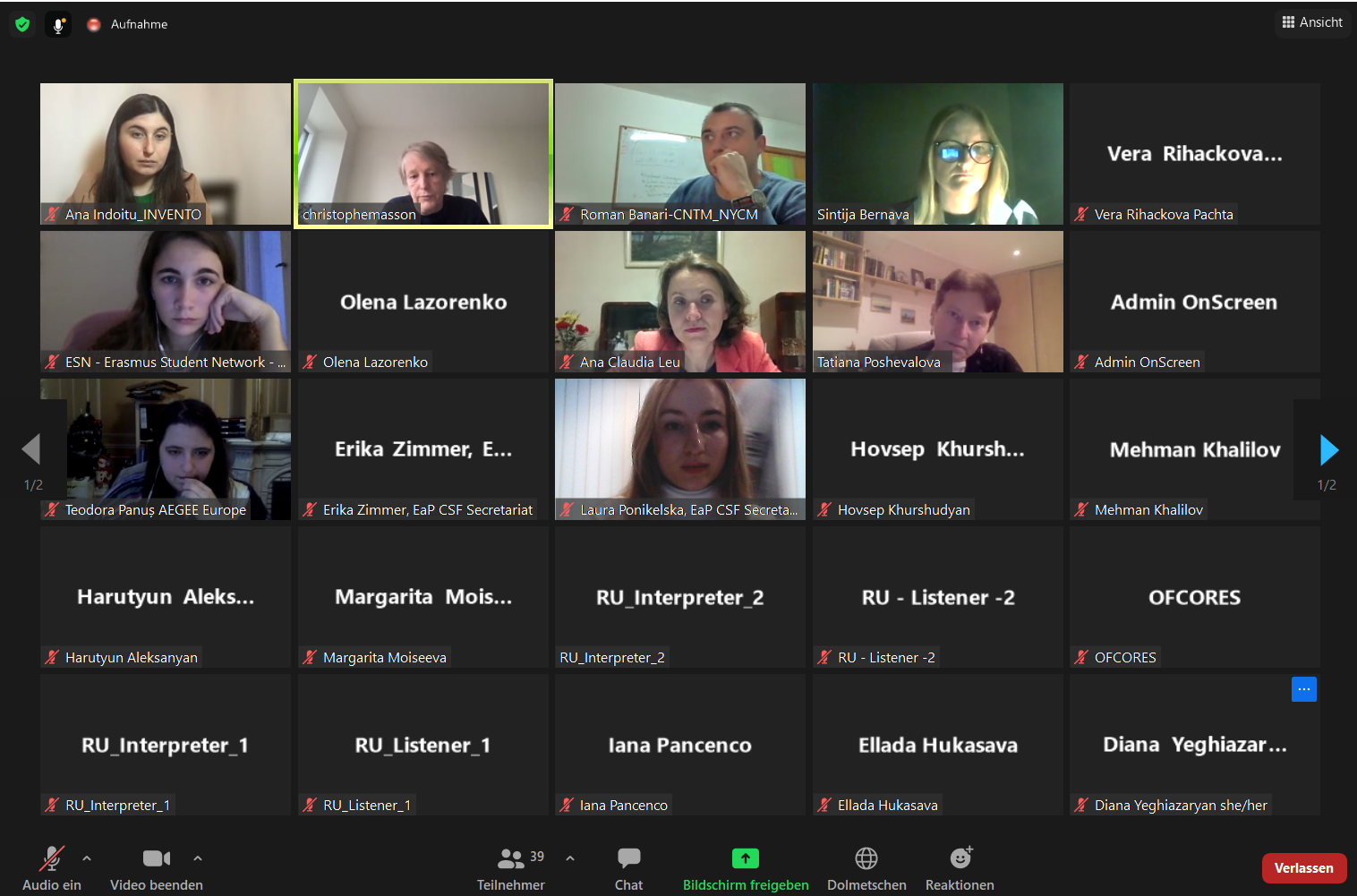1 December 2021, Brussels
Working Group 4 members and delegates met online on 1 December 2021 to discuss the results of the WG4 annual activity report, compiled by WG4 consultant Ana Claudia Leu, and engage in a discussion with Christophe Masson, Team leader for inclusive societies, DG NEAR, European Commission.
During the Working Group 4 thematic meeting, Ana Claudia Leu, Working Group 4 consultant, presented the annual activities of Working Group 4.
The objectives set by national WGs in 2021 varied significantly depending on the context in each country. Most goals were related to youth and education, while the most underrepresented field was research and innovation (the only WG that mentioned goals in this field was the one in Ukraine). The achievement of goals was mostly average. The Georgian and Ukrainian WGs were the only ones that also mentioned objectives reached to a large extent, whereas Armenia placed itself at the low achievement end of the spectrum. Some of the reasons that triggered poor achievement were political uncertainty (Moldova), repressive political regime (Belarus), post-war crisis (Armenia), and the pandemic.
In terms of achievements, most National Coordinators referred to attending meetings organized by different Ministries and Parliamentary Committees, position papers and official statements in relation to actions of national stakeholders, organizing events and conducting research in the fields covered by WG4. Three countries had notable achievements in terms of influencing national stakeholders’ actions in 2021 – Armenia (the Film Law was adopted by the National Assembly of the Republic of Armenia on May 7, 2021, following the work and advocacy of WG 4 member organisations), Moldova (WG4’s recommendations on the National Youth Strategy for 2021-2025 were included in the strategy evaluation report and the setting up of a National Youth Agency was recognized as a priority by the Government), Ukraine (the WG’s proposals on digital transformation in the fields of education and science were taken into consideration by the Ministry for Education and Science). In Belarus, no achievements were reported given the political situation in the country.

Besides the pandemic that was mentioned by nearly all EaP countries, the biggest challenges faced by WGs in 2021 were: limited funding and post-war crisis (Armenia), the lack of accurate statistical data at the national level and impossibility of applying for international funding (Azerbaijan), repressive political regime (Belarus), political uncertainty and dissatisfactory participation of some of the member organisations (Moldova), poor activity rate of public organisations and EU’s formal responses to the WG’s suggestions (Ukraine).
Following, Christophe Massaon, team leader for inclusive societies, DG NEAR, European Commission, presented the work of his team and launched a discussion on the current situation in the EaP countries and how to strengthen civil society in the region. He highlighted the importance of education which is a key driver for development. Moreover, promoting the rights of people with disabilities is also high on his team’s agenda to ensure that nobody is left behind.
Available for download
- Online Meeting Report: EaP CSF WG4 Contacts between people, 1 December 2021.
